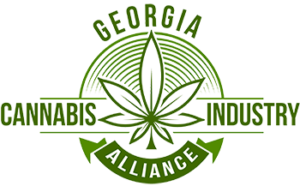The Georgia Medical Cannabis Commission (GMCC) conducts business in an arbitrary and unfair manner, and it violates the constitutional rights of free commerce and equal protection. The GMCC imposes excessive and unreasonable regulations and restrictions on the medical cannabis industry, causing it to be a failure for patients, the legal marijuana companies, disguised as medical, and creates a high entry barrier and a lack of market diversity and accessibility. The GMCC favors certain entities and interests over others, and it allows a few companies to monopolize a billion-dollar industry, while excluding or discriminating against other potential applicants and competitors. The GMCC does not provide a clear and transparent framework or process for the licensing and regulation of the medical cannabis industry, and it operates in a secretive and unaccountable manner.
The GMCC delayed the issuance of the licenses for more than two years, despite the legal deadline of July 1, 2020. The GMCC has cited various reasons for the delay, such as the COVID-19 pandemic, the lack of funding, the legal challenges, and the technical difficulties. However, it is evident that the GMCC stalled and dragged the process and was influenced by political and corporate pressures.
The GMCC has set a high and non-refundable application fee of $25,000 for the license applicants, which excludes many small and minority-owned businesses from the opportunity. The GMCC has also required the applicants to demonstrate a minimum of $4 million in liquid assets, and to secure a bond of $1.25 million, which further limits the pool of eligible candidates. If the state was truly interested in eliminating most of the illicit market, they would have spread the licenses out and created a system in which anyone who wants to sell cannabis can legally do so. A ‘legacy to legal’, cottage industry would have been a welcome market for those cannabis connoisseurs who prefer carefully grown products of the highest quality.
The GMCC has limited the number of licenses to six, and the number of dispensaries to 30, which creates an oligopoly and a scarcity in the market. I don’t care who you are, even if you are one of the lucky ones to afford million-dollar licenses, you know that isn’t fair to Georgians who have fought decades for a fair and equal opportunity to be able to be grown, sell, and consume cannabis. The GMCC has also banned the interstate commerce and importation of the low-THC oil, which forces the patients and businesses to rely on the in-state sources or illegal means to obtain the product.
The GMCC has prohibited the sale and consumption of other forms of medical cannabis, such as edibles and flowers, which reduces the consumer choice and preference, and affects the quality and potency of the product. The GMCC has also imposed strict and complex requirements and standards on the cultivation, production, and distribution of the low-THC oil, which increases the cost and difficulty of the operation.
The GMCC has not provided any legal protection or immunity for the patients, caregivers, doctors, or businesses who are involved in the medical cannabis program, leaving them vulnerable to federal prosecution and civil liability. The GMCC has also not established a clear and consistent mechanism for the enforcement and oversight of the medical cannabis program, and for the resolution of disputes and complaints.
On a final and relevant note, legalization should focus on putting an end to the arrests and incarceration in our state. Instead, it has only been focused on financial windfalls for the few. According to the ACLU, Georgia has one of the highest rates of marijuana arrests in the country, with more than 40,000 arrests in 2018 alone. These arrests disproportionately target and impact people of color, who are three times more likely than white people to be arrested for marijuana possession in Georgia, despite similar usage rates. These arrests also waste valuable resources and time that could be better spent on addressing more serious crimes and public safety issues. Moreover, these arrests often result in harsh and long-lasting consequences for the individuals and their families, such as fines, fees, jail time, probation, loss of employment, housing, education, and voting rights. Decriminalization would eliminate these unjust and unnecessary arrests and incarceration and would allow the state to redirect its resources and efforts towards more productive and beneficial purposes. Decriminalization would also reduce the stigma and discrimination associated with cannabis use and would improve the health and well-being of the people who use it for medical or recreational reasons. Decriminalization should also create a fair, regulated and taxed market that would generate revenue and jobs for the state and the local communities. Decriminalization would not only mean the end of arrests and incarceration, but also the beginning of a new era of freedom, justice, and prosperity for our state.
We have witnessed the GMCC conducting business in an arbitrary and unfair manner, violating constitutional rights of free commerce and equal protection. And let’s be honest here, what we’re really talking about is marijuana and THC.
